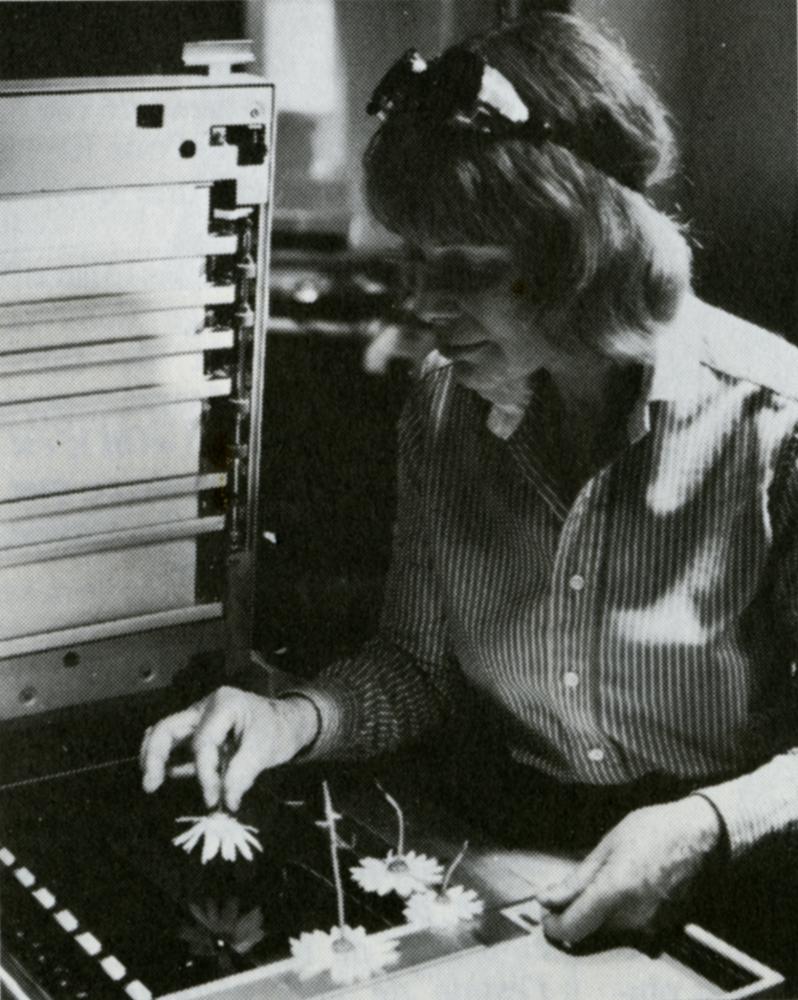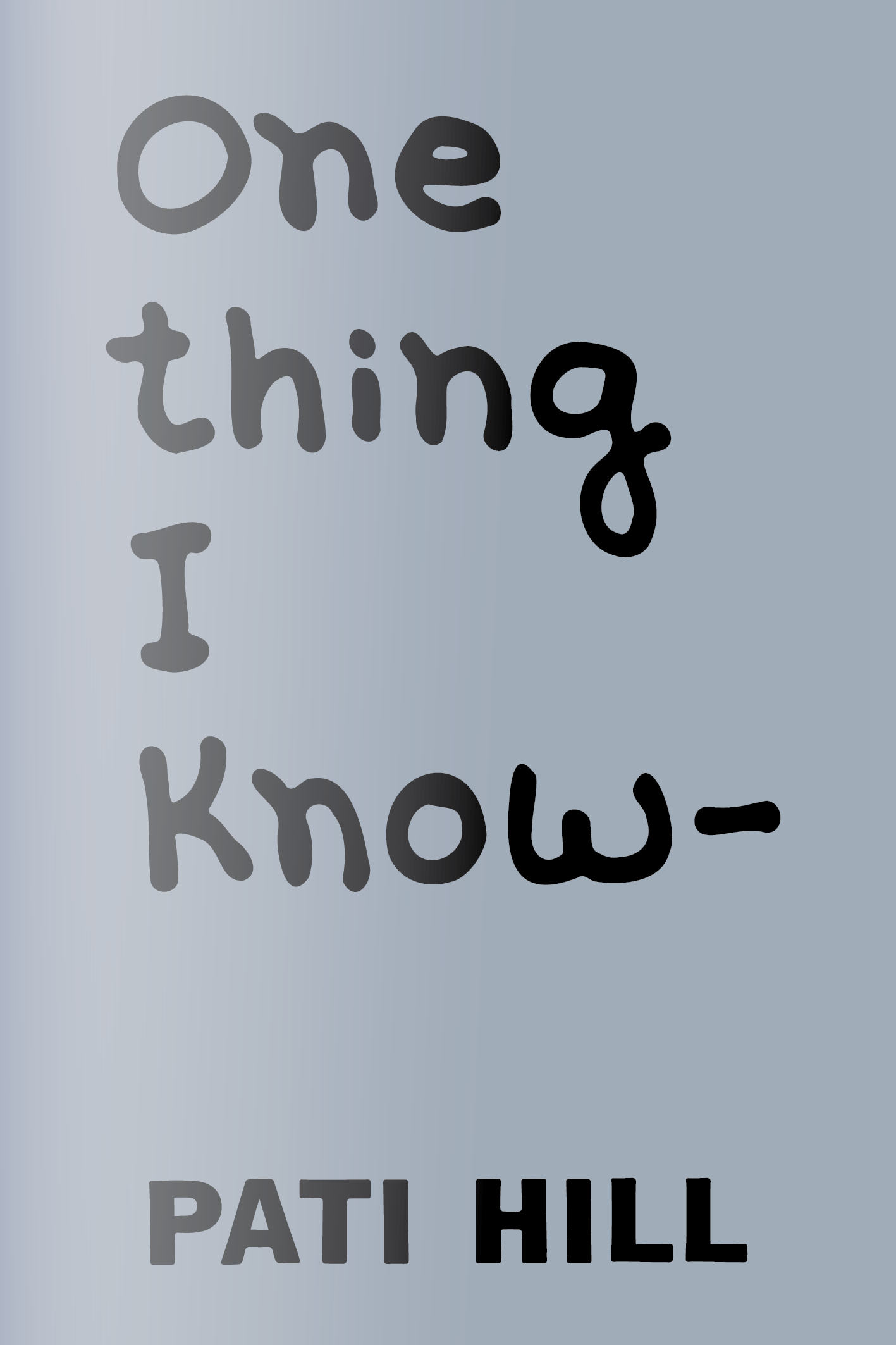
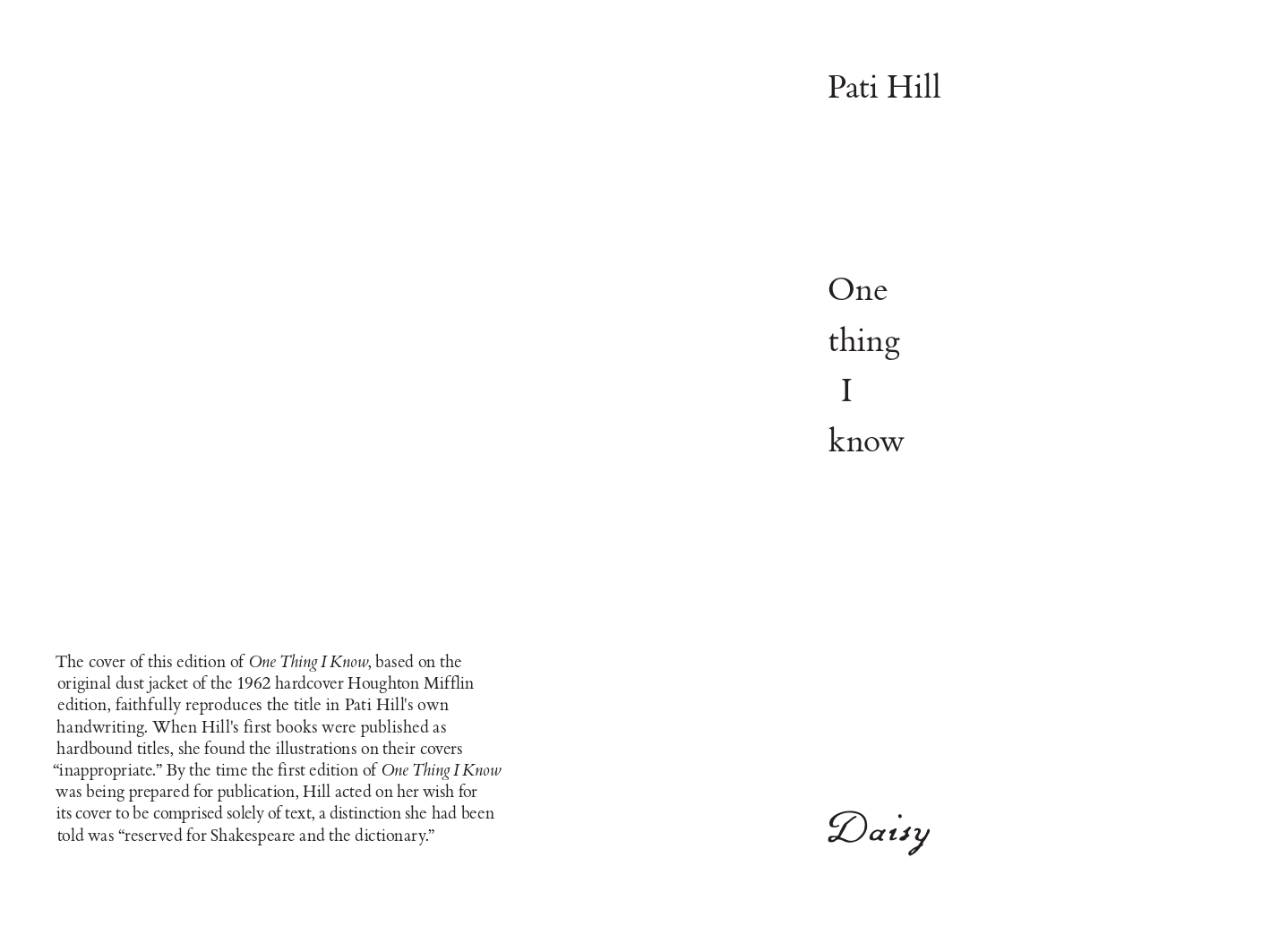
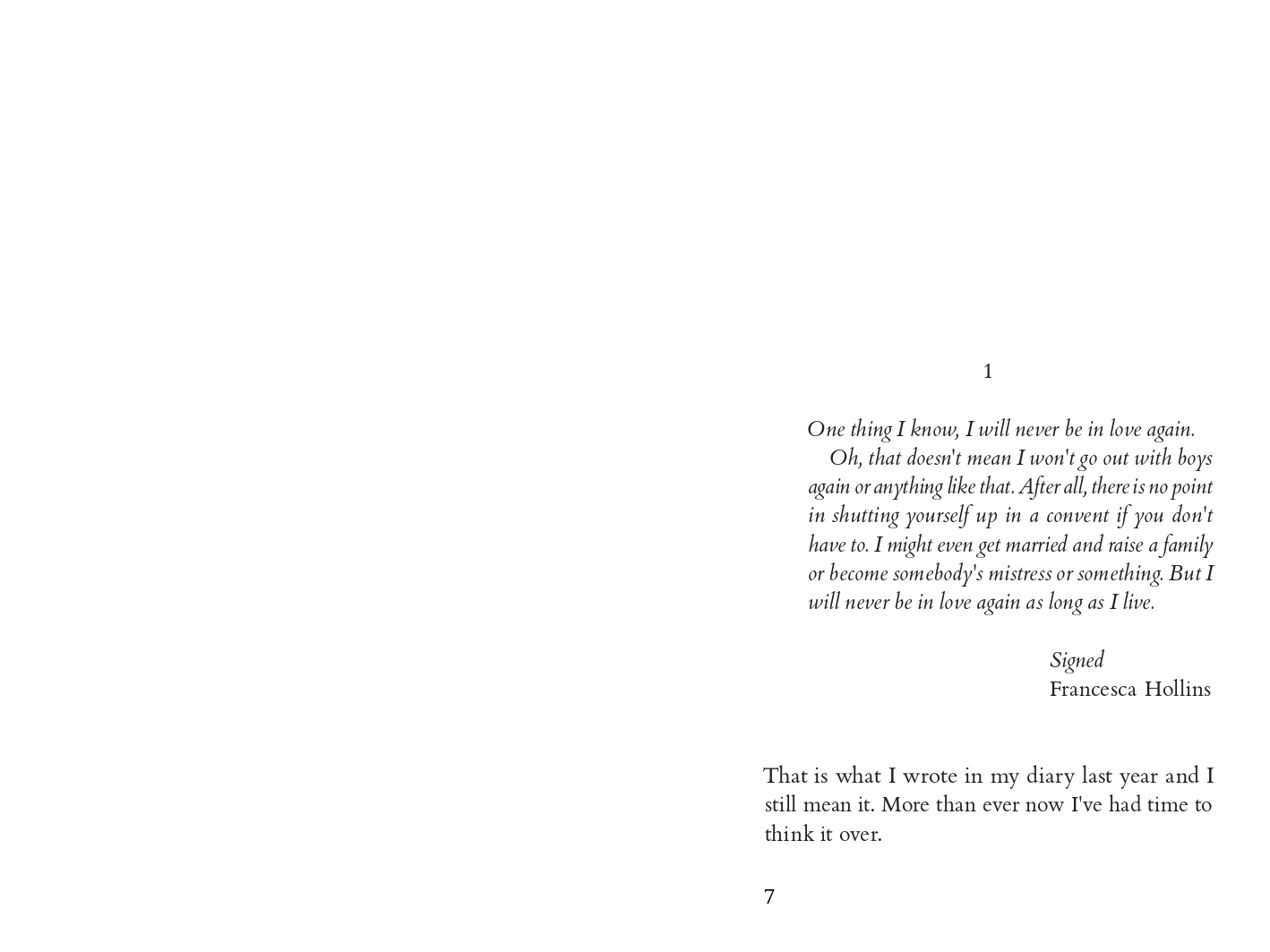
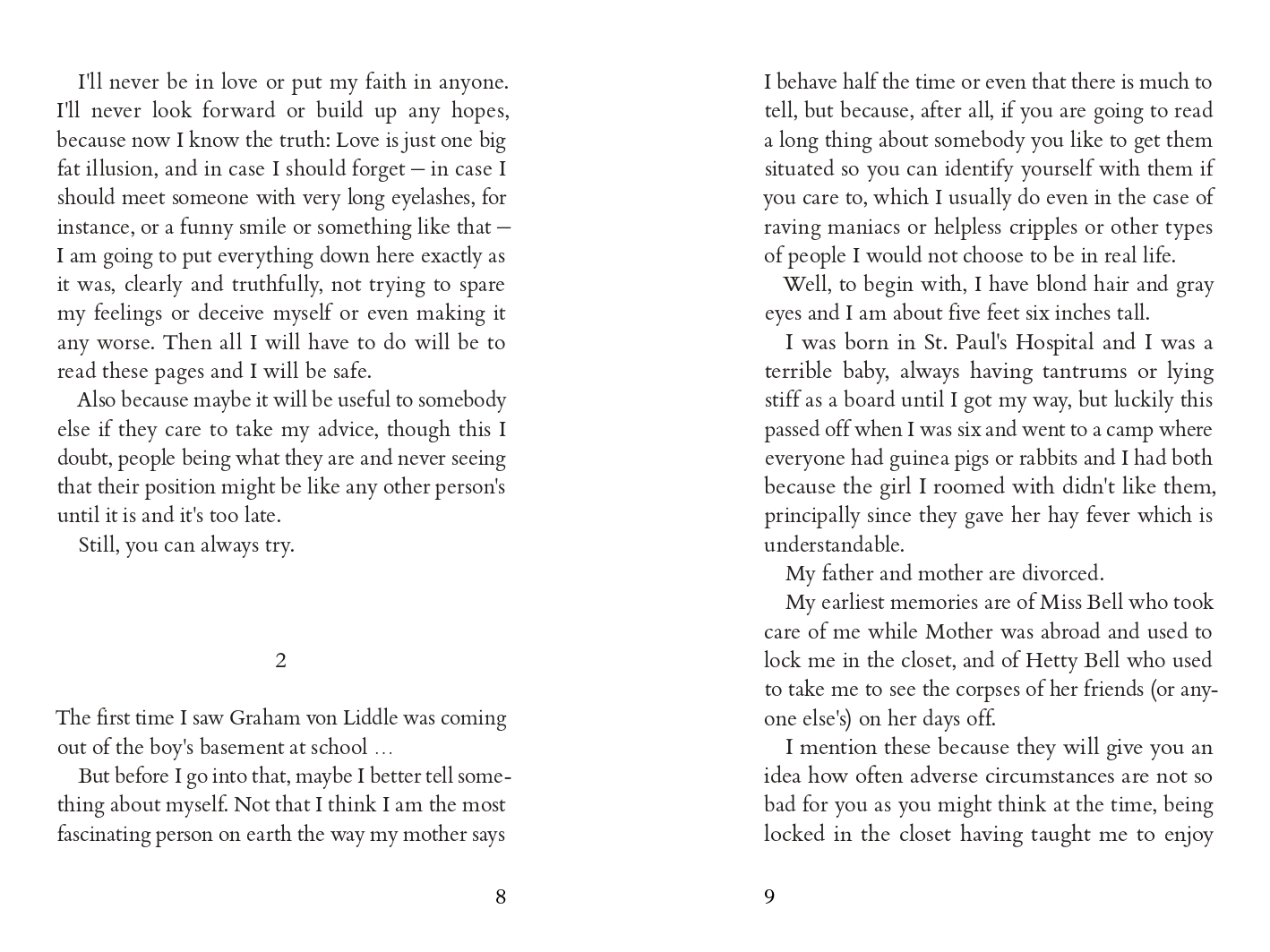
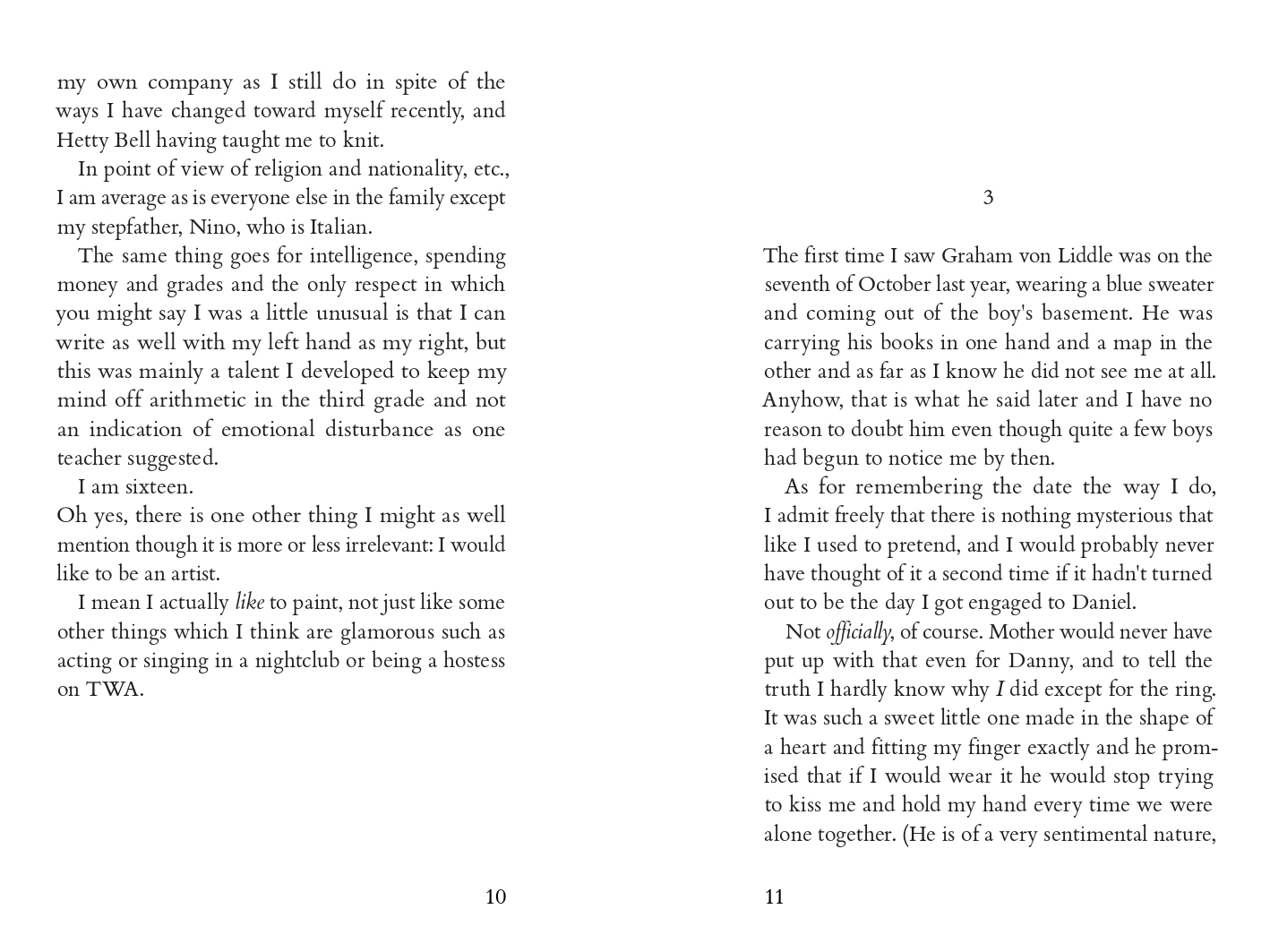
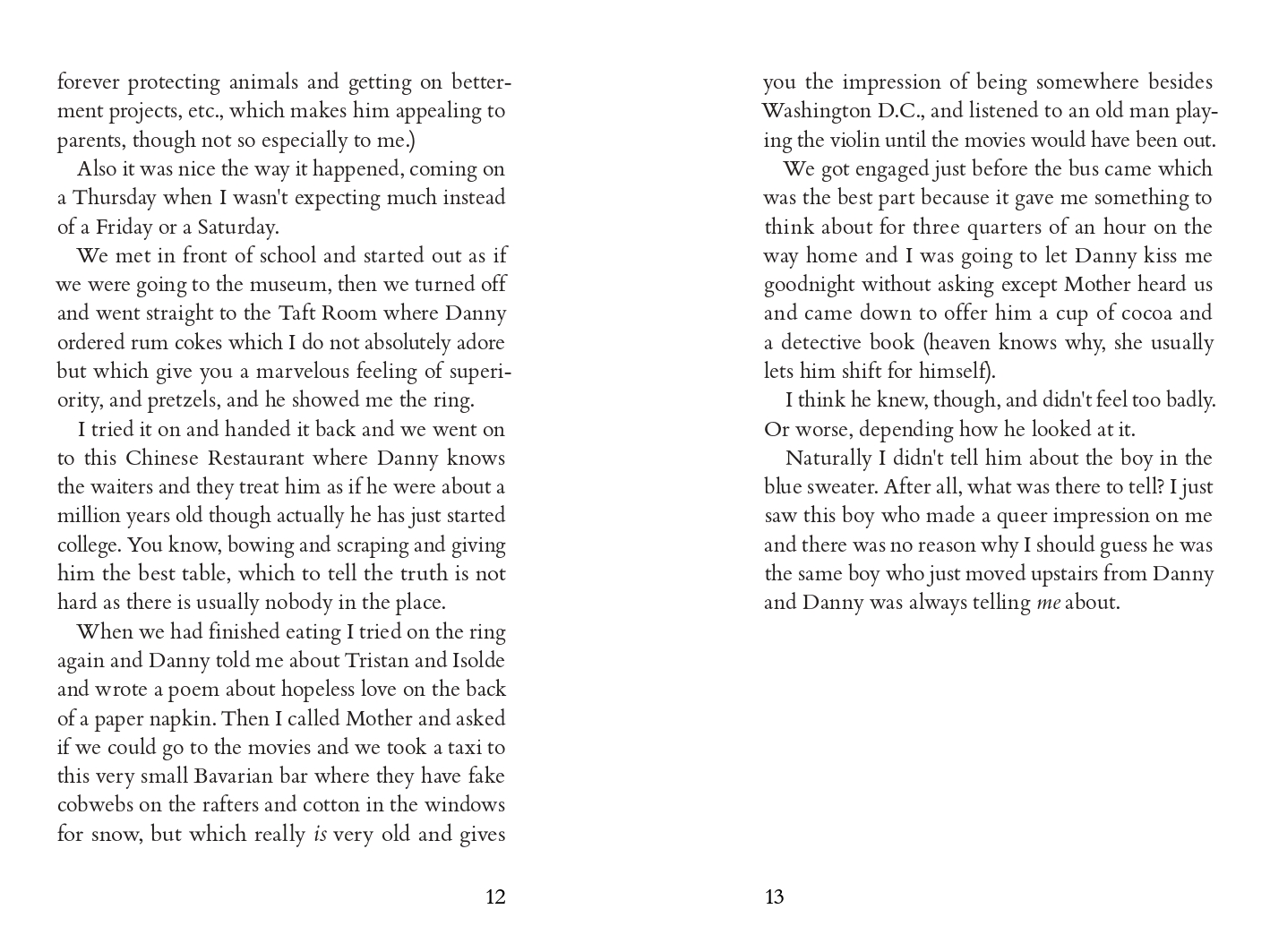
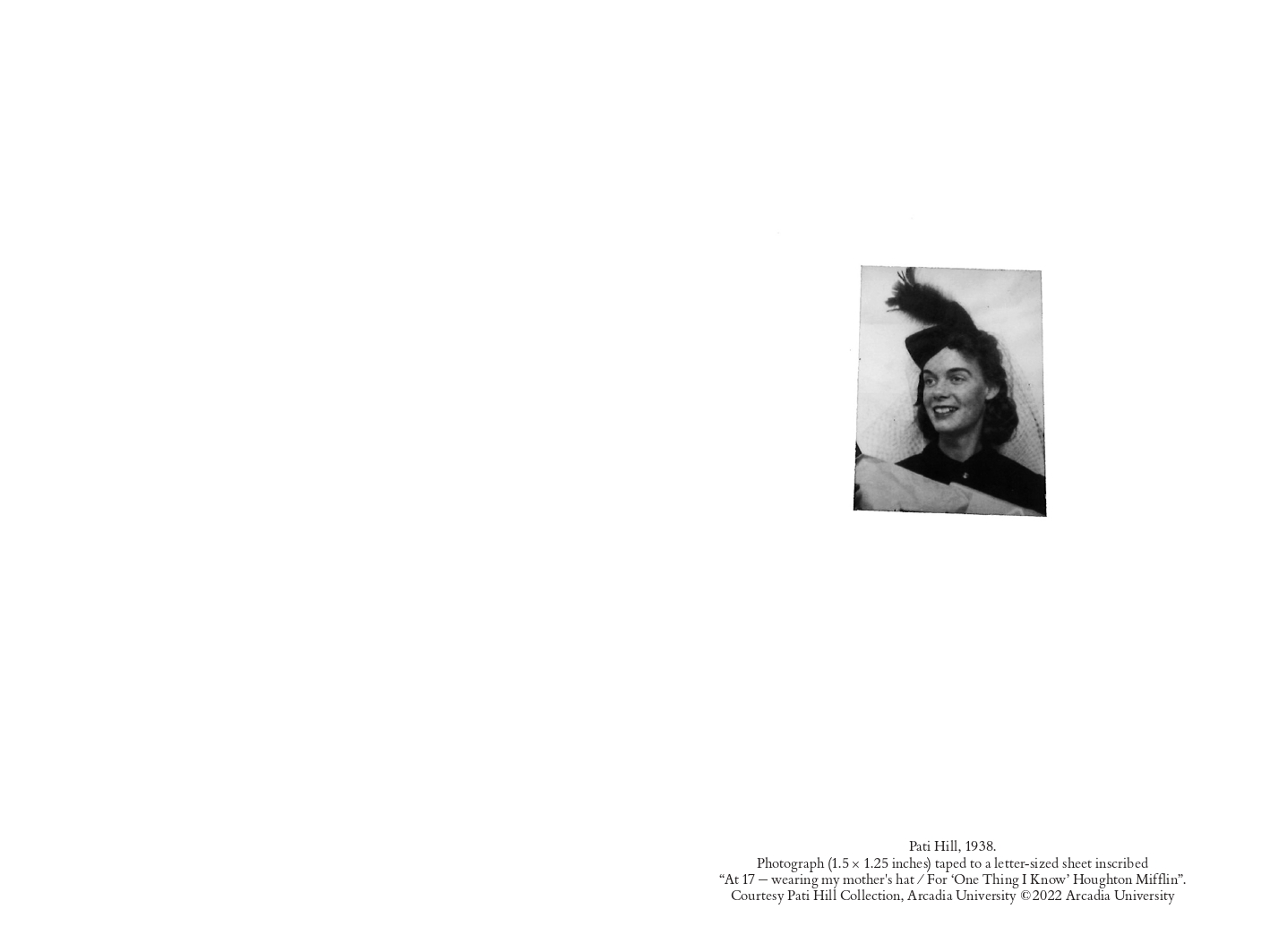
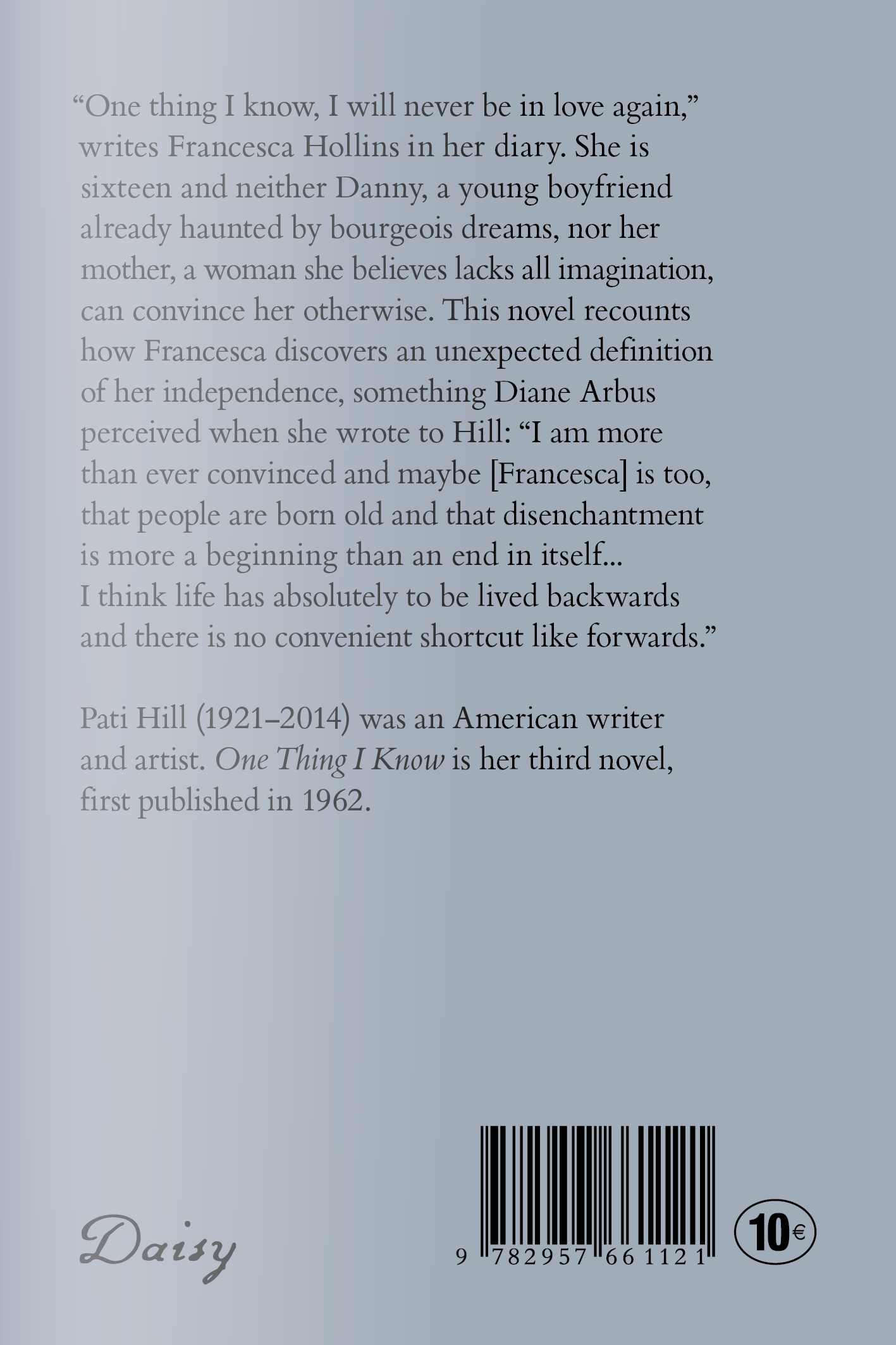

- Text by Pati Hill
- Afterword by Baptiste Pinteaux
- Designed by Ana Baliza
- July 2022, English, Literature
- 108 pp., 12 × 18 cm, softcover
- Edition of 600
- ISBN 978-2-9576611-2-1
- The cover of this edition of “One Thing I Know”, based on the original dust jacket of the first 1962 hardcover edition, faithfully reproduces the title in Pati Hill’s own handwriting.
‘‘One thing I know, I will never be in love again,’’ writes Francesca Hollins in her diary. She is sixteen and neither Danny, a young boyfriend already haunted by bourgeois dreams, nor her mother, a woman she believes lacks all imagination, can convince her otherwise. This novel recounts how Francesca discovers an unexpected definition of her independence, something Diane Arbus perceived when she wrote to Hill: ‘‘I am more than ever convinced and maybe [Francesca] is too, that people are born old and that disenchantment is more a beginning than an end in itself… I think life has absolutely to be lived backwards and there is no covenient shortcut like forwards.’’
I was 15 years old and devastated losing my summer boyfriend (ok it was 2 weeks). I picked up this little gem of a story and I somehow felt better. I understood Francesca and longed for Graham to come back to her. It’s one of those rare books you can’t return to the library because it becomes a part of you. Years later I noticed the author’s dedication at the front of the book and instantly elements in the story took on new meaning. It was dedicated to Diane Arbus, well known art photographer.
—Andrea Barol, goodreads.com
“I will be never be in love again”—so reads an entry from a diary kept by Francesca Hollins and the experience which led to this conviction is reviewed a year later here. A child of divorce, Francesca is 15 when she meets Graham von Liddle at school, Graham who shares her interest in Art and sounds more highminded than he proves to be and certainly very temporary once Gloria attaches herself to him. There are other defections too; their mutual friend Danny gets married; her mother’s lover heads west; but hardest to hear is not Graham’s loss—but the lose of someone to love… This short novel is about as ephemeral as the brief experience with which it deals and in all its artful prattle one can suspect a certain disingenuousness. Still—there is more than a little humor and a certain , more demure to be sure than that of Sagan and other youthful contemporaries.
—Unknown, kirkusreviews.com
Pati Hill (1921, Ashland, Kentucky–2014, Sens, France) left behind a literary and artistic output spanning roughly 60 years. After a short but successful career as a model, between 1953 and 1962 she published short stories and five books, many of which were initially excerpted in the Paris Review and met with critical acclaim. Hill published One Thing I Know in 1962 following the birth of her only child, a daughter. She was then forty-one years old and would later claim to have decided at that time to “quit writing in favor of housekeeping.” Although she published no work during the thirteen years that followed, Hill continued to write and in the early 1970s began her first experiments with the photocopier. Untrained as an artist, she started using the device as a tool to explore the relationship between image and text. In 1974, Hill published a collection of poems with the unambiguous title Slave Days, in which her first mature artworks appear: xerographs of household objects that seem to float in indistinct space.
Hill continued to employ the machine for 40 years, creating a considerable body of work comprising thousands of photocopies and texts, as well as drawings, etchings, and artist’s books, which she exhibited in France and the United States. Three years after her death in 2014, her complete archive was transferred to Arcadia University, Glenside, Pennsylvania, where a survey of the first decade of her xerographs and books was presented in 2016.
Long ignored, the work of Pati Hill now enjoys new critical interest. In the spring of 2020, her first posthumous exhibition in Europe was presented by the Kunstverein München and traveled to the Kunsthalle Zürich coincident with a trilogy of shows organized by Baptiste Pinteaux in 2020 and 2021 at the galleries Air de Paris and Treize in Paris and at Ampersand in Lisbon. Examples from her series Common Objects (1977–79) were acquired by the Whitney Museum of American Art, New York in 2019 and by the Centre Pompidou, Paris in 2021.
